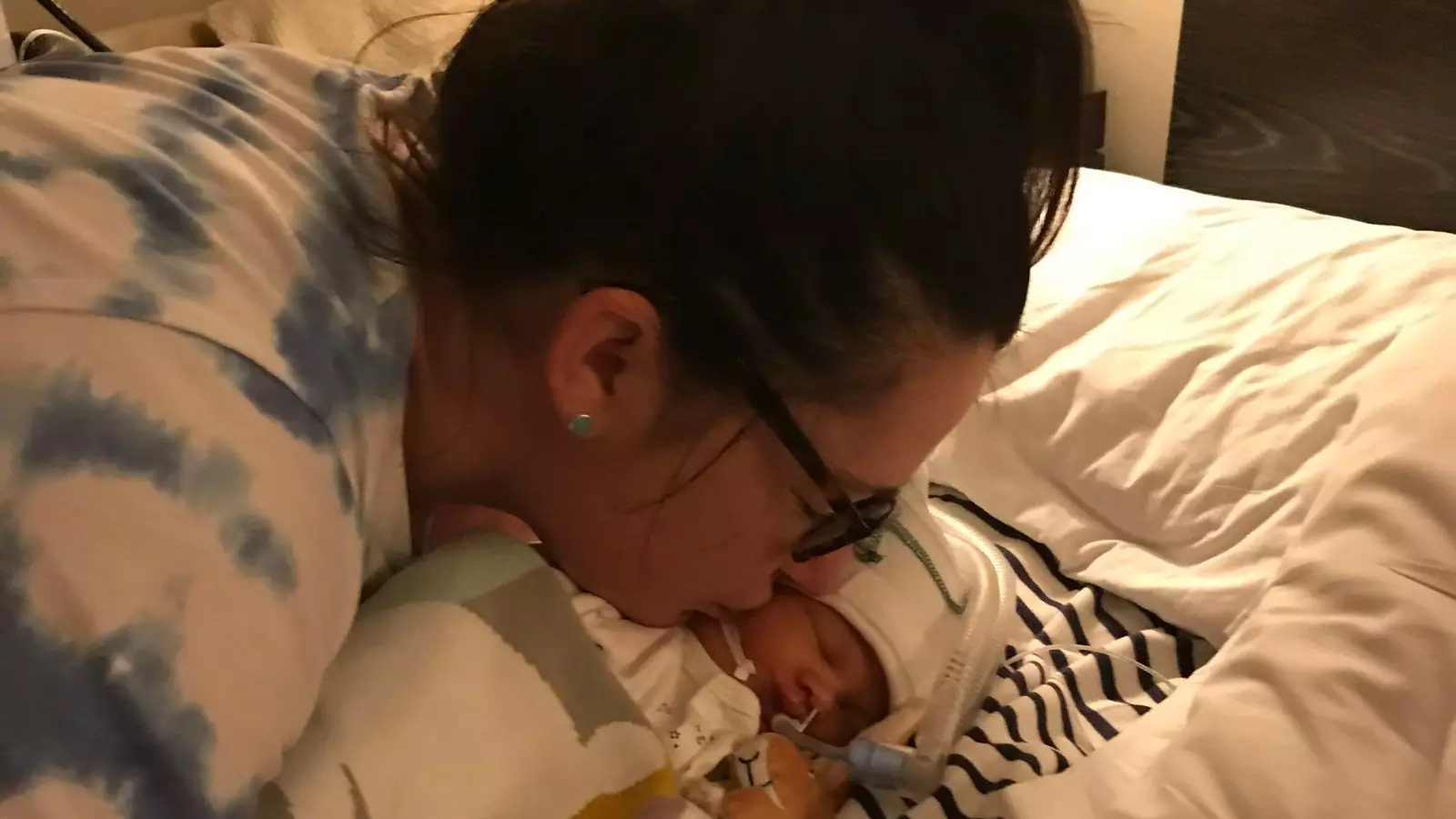In the realms of medical care, especially maternity services, trust forms the foundation upon which parents place their hopes. This trust, however, can be tragically misplaced, as exemplified by the heartbreaking case of baby Ida Lock. Born at the Royal Lancaster Infirmary, she was meant to start a life full of dreams and potential. Instead, her brief existence was marked by chaos and a painful absence of care. The coroner’s findings revealed that midwives failed to provide the basic medical assistance that could have altered Ida’s tragic fate, highlighting systemic flaws that reverberate far beyond this one family.
As a parent, the sheer injustice of this case is gut-wrenching. The Lock family did not just lose a daughter; they were thrust into a relentless battle for answers, only to be met with walls built by the very institution they trusted. Ryan Lock’s assertion that the hospital trust “put up a huge wall” serves as a grim reminder of the toxicity that can saturate the caregiver-patient relationship. The emotional toll on the parents is further compounded by feelings of guilt and blame, particularly for Sarah Robinson. It is a disturbing reality that grieving parents are often made to feel responsible for the failings of the system, an added agony during an already unimaginable time.
Institutional Failures Exposed
The immediate investigations following Ida’s death painted a misleadingly benign picture. An initial review by the University Hospitals of Morecambe Bay NHS Trust claimed there were no issues with her delivery, a conclusion that both infuriated and baffled the grieving parents. This lack of transparency and diligence is unacceptable. The subsequent report from the Healthcare Safety Investigation Branch (HSIB) exposed grievous oversights, ranging from the failure to monitor a dangerously slow fetal heart rate to inadequate resuscitation efforts post-delivery. It raises unsettling questions about the reliability of institutional reviews and the culture of accountability within them.
Dr. Bill Kirkup, who authored a damning 2015 report on maternity care in Morecambe Bay, called these lessons “unforgivable.” His assertion that there is a widespread failure of culture within maternity services not only highlights the need for immediate reform but also indicates a systemic issue that demands urgent attention. It is appalling that, years later, we continue to hear stories of neglect, suffering, and loss. The CQC’s assessment revealing that 65% of maternity units are rated “inadequate” or requiring improvement resonates ominously. Surgery might be a high-stakes field, but the health, safety, and lives of newborns should never be treated with any less urgency or seriousness.
The Call for Cultural Transformation
What emerged from this tragedy is not merely an understanding of what went wrong; it’s a clarion call for change. Mr. Lock’s insistence on the need for greater accountability reflects a broader societal need. If we allow those in power to become complacent, we only perpetuate a cycle of negligence. This is not just about one incident but a systemic malaise infecting maternity care across the nation.
Parents, like Sarah Robinson, who bear the weight of such harrowing experiences should expect openness and honesty from medical professionals. Their anguish is compounded when they lack access to vital information—information that could provide answers or at the very least, closure. Mr. Lock’s belief that a culture of deceit thrives when people are not held accountable echoes a significant call: our healthcare systems must foster an environment where truth is paramount, and care is unflinching.
The Pain of Remembrance
The Lock family’s heart-wrenching endeavor to commemorate their daughter signifies the emotional toll of their experience. Scattering Ida’s ashes on what they honor as “Ida’s beach” becomes more than a ritual; it transforms into a form of resistance against an unforgiving system. It’s a poignant reminder that those lost to systemic failures are not mere statistics but cherished individuals with families forever altered by the absence.
The journey for justice is often lengthy and fraught with obstacles. In their pursuit of accountability, the Locks embody a hope that future parents will not have to endure a similar fate. Their ongoing fight against an indifferent establishment serves as a potent reminder of the need for vigilance, transparency, and profound cultural transformation in maternity care. Amidst the systemic heartbreak, the forgotten families must be remembered, and the answers they seek must never be denied again.


Leave a Reply